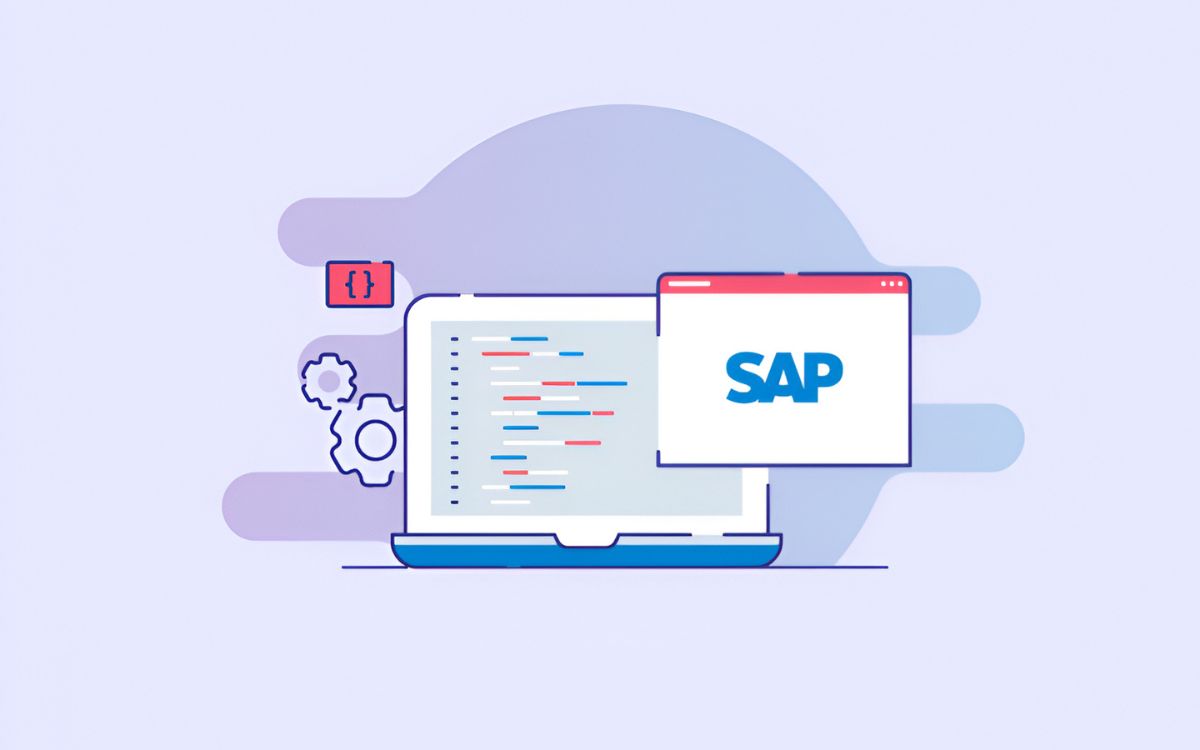Decoding the Power of SAP Business Objects Reporting Tools & ABAP Reports

In a world driven by technology and data, businesses are continually exploring ways to improve productivity, performance, and profit margin. Among the myriad of tools available, SAP Business Objects Reporting Tools and ABAP Reports have emerged as potent solutions, especially benefiting small industries. This blog aims to delve deeper into these technologies, elaborating their benefits and potential uses.
A Deep-Dive into SAP Business Objects Reporting Tools
SAP Business Objects, a business intelligence suite of applications, has been designed to help businesses convert raw data into actionable insights. These tools employ the capabilities of the Information Design Tool and Universe Design Tool to offer a robust platform for ad-hoc querying, comprehensive database analysis, and crucial report preparation sourced from a wide range of data.
The salient feature of Business Objects is its ability to simplify complex data exploration. It empowers users to convert complicated queries into easily comprehensible reports, thereby becoming acquainted with their company's analytics more intuitively. As a result, it expedites the decision-making process while alleviating dependencies on IT resources.
One could also argue that Business Objects offers a greater degree of operational transparency, since it makes database analysis efficient, enabling businesses to identify patterns, trends, and insights that drive growth and profitability.
The Power of ABAP Reports in SAP
ABAP (Advanced Business Application Programming) reports are an essential aspect of SAP's programming landscape. These reports in SAP ABAP are instrumental in offering users accurate, timely, and essential information across various business dimensions.
With data being a business's vital asset, ABAP reports can aggregate complex data into a more digestible format. From simple lists to intricate interactive forms, ABAP reports can be crafted specifically for different business tasks.
By leveraging an ABAP report, businesses can gain summarized yet detailed information about their operations, facilitating informed business decisions. Real-time data management is a critical aspect of these reports, making them indispensable tools for businesses, including smaller industries.
Empowering Small Industries with SAP Cloud Services
Recognizing the growing need for specialized services in small industries, SAP has introduced two cloud offerings - the SAP Public Cloud and the SAP Private Cloud. These services are fashioned to revolutionize the digital ecosystem of smaller industries.
The SAP Public Cloud for Small Industries delivers a scalable, economical solution capable of managing various business operations. Infused with innovative features like intuitive business intelligence, multi-tenant architecture, and AI-empowered automation tools, the Public Cloud enables small industries to orchestrate organizational processes, compile insightful analytical reports, and consequently propel business growth.
Alternatively, the SAP Private Cloud meets the rigorous standards of businesses with stringent control, security, and compliance needs. This service assures top-notch ERP system capabilities nestled in the safety of private, secure, cloud environments.
Rising to the Occasion with SAP
In the face of swiftly evolving business environment, SAP introduced RISE with SAP- a holistic approach that changes how businesses handle their SAP software. RISE allows firms to adapt quickly to novel business models and processes while maintaining longstanding operations.
RISE with SAP disrupts conventional business practices by offering a simplified engagement model. This model integrates cloud infrastructure options, tools to streamline business processes, and inbuilt analytics - ensuring businesses have access to a comprehensive yet convenient suite of transformative tools.
Implementing SAP for Manufacturing Industries
Manufacturing industries have unique needs due to the intricacies of their operations. Effective resource planning, seamless manufacturing processes, intricate supply chain management, and rigorous quality control are just a few of the areas that demand precision and transparency. SAP's solutions can provide a much-needed answer to these specific requirements.
SAP for Manufacturing Industries includes applications that cover all facets of the industry - from production planning to warehouse management. SAP's Enterprise Resource Planning (ERP) system streamlines business processes, enabling effective communication between different departments, increasing productivity, and reducing errors.
For example, SAP Manufacturing Integration and Intelligence (MII) acts as a bridge between shop-floor systems and business operations, providing real-time, actionable data about plant processes to improve decision-making and performance.
SAP also offers solutions like SAP Extended Warehouse Management (EWM) for logistics and supply chain processes, SAP Advanced Planning and Optimization (APO) for strategic foresight in planning, and SAP Quality Management (QM) for overseeing quality across the operation.
The Role of a SAP Development Consultant
While implementing these powerful tools, a vital player often overlooked is the SAP Development Consultant. They play an integral role, ensuring the smooth implementation and effective utilization of the SAP platform.
A SAP Development Consultant is responsible for creating or customizing SAP applications according to the specific needs of the business. They work with businesses to understand their operations, identify areas that can benefit from SAP's functionalities, and develop tailored solutions to improve those operations.
From designing and deploying applications to troubleshooting and improving existing systems, the SAP Development Consultant ensures that the SAP platform is well-integrated into the business workflow, leading to seamless, effective use.
These consultants provide valuable guidance during the implementation process and ongoing support, assisting users and maintaining the SAP environment to ensure it continues to serve the evolving needs of the business. Hence, their role is essential in realizing the full potential of SAP implementations.
In Conclusion: The SAP Advantage
Harnessing the capabilities of SAP Business Objects Reporting Tools, ABAP reports, coupled with SAP Cloud services, can open up new opportunities for smaller industries. These technological solutions can automate operations, facilitate data-driven decisions, and pave the way for unparalleled business growth.
When these tools are paired with RISE with SAP, it aids small industries in accelerating their digital transformation journey. In conclusion, these powerful SAP offerings equip small industries with the tools they need to thrive and succeed in today's fiercely competitive landscape.

Comment